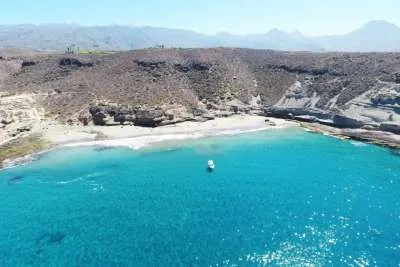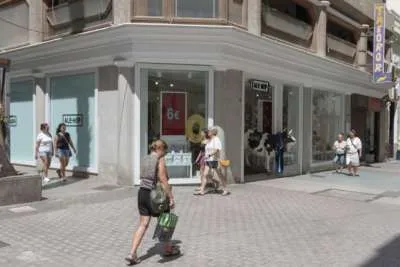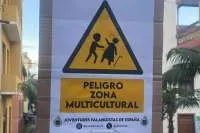‘We Speak Spanish Here’: Canarians complaint about non-Spanish speaking staff sparks debate
- 29-07-2025
- National
- Canarian Weekly
- Photo Credit: Diario de Avisos
A viral TikTok video from a local content creator has ignited discussion over language, identity, and tourism in the Canary Islands. As reported in Diario de Avisos, Nessa Bratz, a popular TikToker known for her direct style and commentary on life in the islands, shared a personal experience that has struck a chord with thousands of Canarians and viewers online.
In her video, Nessa recounts an encounter at a supermarket in Tenerife, where she claims she was unable to communicate with a shop assistant because the employee only spoke English.
“I went to ask for a product I couldn’t find, but she, as best she could, told me: ‘Sorry, no Spanish.’ Just like that,” Nessa says, expressing her frustration. “Why hire someone who only speaks English in a place where we speak Spanish?”
Though she makes clear her criticism is not aimed at the individual employee, “She’s just doing her job,” Nessa acknowledges, her frustration lies with hiring practices in the service sector, particularly in heavily touristic places like the Canary Islands.
“In a restaurant job interview, they ask you what level of English you have. If it’s low, they won’t hire you. And now we’re allowing people to work here without knowing Spanish?” she asks.
She argues that in Spain, and especially in the Canaries, Spanish, or “Canarian Spanish,” as she puts it, should be expected in public-facing roles. “This isn’t France, Italy, or England. This is Spain. We speak Spanish here,” she says, echoing the video’s title.
A wider reflection on tourism and identity
Beyond the incident, Nessa’s video is a broader reflection on how mass tourism is impacting daily life for Canarians. She warns that locals are being pushed to adapt to foreign languages in their own homeland, simply to be understood or to access services.
“It’s sad that, because of mass tourism, people living in the Canary Islands are being forced to speak a language that isn’t theirs,” she says. She goes on to compare the situation to other countries: “If you go to France, no one’s going to speak Spanish to you. In England? Forget it. In China? You’ll need a translator. So why is it that here, locals are expected to accommodate everyone else?”
Divided reactions online
The video has sparked a wave of reactions from Canarians, many in agreement. “Totally agree with you, I’ve had the same experience,” one person wrote. Others, however, pushed back, arguing that the Canaries’ tourism-based economy naturally demands linguistic flexibility and that language diversity should be embraced rather than resisted.
The issue also touches on labour laws. While there’s no law in Spain that mandates Spanish fluency for private-sector jobs, language knowledge is often listed as a requirement in customer-facing roles. In highly touristic zones like the Canary Islands, however, many employers prioritise English or German proficiency to better serve foreign visitors, sometimes at the expense of local language expectations.
A simmering debate resurfaces
Nessa Bratz’s video has brought a common, if underreported, tension into the spotlight: how to balance cultural identity with the pressures of a tourism-driven economy. Her words have reopened a long-standing debate over language, employment rights, and regional identity in the Canaries.
While the archipelago continues to promote itself as a diverse, international destination, voices like Nessa’s serve as a reminder that, for many locals, the Canary Islands are more than just a holiday spot; they are home. And with that comes a call to preserve the language and customs that define their way of life.
As Nessa puts it in closing: “It’s a question many of us ask in silence, how much of our identity are we expected to give up for tourism?”
Other articles that may interest you...
Trending
Most Read Articles
Featured Videos
TributoFest: Michael Buble promo 14.02.2026
- 30-01-2026
TEAs 2025 Highlights
- 17-11-2025


























































